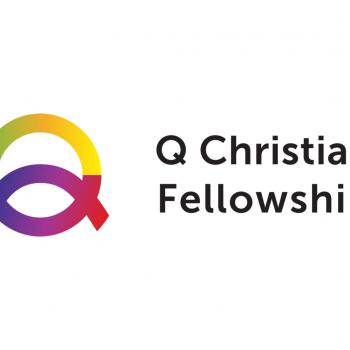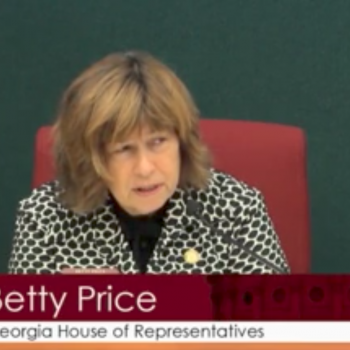The university is one of society’s great incubators of ideas—unless you belong to InterVarsity Christian Fellowship. As reported this week by TIME, the evangelical collegiate organization will seek to dismiss staff members who disagree with its positions on human sexuality, in particular those who believe God can and does bless same-sex relationships. As Bible-believing Christians, with several friends who have served in InterVarsity, we see this as a divisive step that puts into question whether the organization deserves to serve on any secular college campus.

The history of church division is glaringly evident by the thousands of denominations around the world today. Picture a family tree, breaking into ever-smaller branches of Christian discord. While the early church was never a neatly unified body, disagreements arising throughout the ages have divided believers into ever more specific, insular groups. Transubstantiation? Split. Infant baptism? Split. Women in leadership? Split. In 1054, one of the greatest schisms in Christianity occurred, in part, over three words in the Nicene Creed called the filioque clause. We Christians are a persnickety bunch.
And now, at a moment in time when a generation of Christians is starving for inclusion, InterVarsity is perpetuating this tradition of division, isolation, and exclusion. Rather than holding sacred space for a diversity of viewpoints, the organization is enforcing a hard line that may force staff members to choose between hiding their beliefs and losing their jobs. Keep in mind this is not an argument over whether LGBT Christians are allowed to work for the organization (they aren’t, unless they remain celibate for life). Rather, it’s an ideological crackdown on any employee—gay or straight—who holds a differing opinion on the sanctity of same-sex relationships. It’s an attempt at control so heinous that it threatens the academic spirit of the college campus.
Intellectual institutions remain one of the primary spaces where we welcome a free flow of ideas and beliefs. It’s part of the reason the University of Chicago sent out a letter this summer to new students asserting its intention to protect academic freedom and the exchange of ideas, even those considered controversial and offensive. An organization like InterVarsity, whose sole mission is to evangelize to college students, has no place pushing its beliefs when it refuses to engage in the collegiate melting pot of ideas. The group has historically earned regard for fostering critical thinking, as evidenced by the speaking invitation they extended only months ago to Julie Rogers, a gay Christian speaker, writer, and advocate. InterVarsity’s new policy against divergent viewpoints is not only intolerant, it’s regressive. The policy enforces a rigid, myopic mindset that will trickle down to the students they are trying to serve. How can college-aged Christians truly decide what they believe when there is never an opportunity to debate? How can hearts change toward others when our ears refuse to hear their stories?
Equally worrisome is the division that leaders of InterVarsity are sowing with this edict. By threatening the jobs and livelihood of LGBT allies, they are pitting Christians against each other, even parents against their own children. Take, for example, Ginny Prince, who in the original TIME article explained how she was forced to choose between her job and her transgender child: “I got fired … I sent an email and said, I cannot align, and I think that this policy is discriminatory, and I cannot align. That was it. We cried, we cried really hard my last day.” There are lasting consequences to a policy that allows no room for otherness, and rejects those who diverge from an insular group’s notions of acceptability. There’s something inherently problematic about a spiritual organization that refuses to allow space for people to safely process ideas that may be controversial, even heretical.
Evangelicals who congratulate themselves for their inflexibility argue that they are standing up for the authority of scripture. What they forget is that, as preeminent New Testament scholar N.T. Wright has explained, the authority of the Bible stems from the primordial authority of God Himself. And as he explains, “Authority is not the power to control people, and crush them, and keep them in little boxes,” as InterVarsity is seeking to do. “Rather, God’s authority vested in scripture is designed, as all God’s authority is designed, to liberate human beings, to judge and condemn evil and sin in the world in order to set people free to be fully human.”
What the leaders of InterVarsity fail to realize is that God is not threatened by a free exchange of ideas. In fact, He welcomes it. Religious people who are threatened by viewpoints contrary to their understanding of faith have a small view of God. The One who is the Alpha and the Omega, the beginning and the end, is infinitely larger than any perceived false belief. The Truth and the Light is not threatened by falsity and darkness. It takes a mature faith to understand that we Christians aren’t called to be the guardians of God and the enforcers of His truth; we are called to love like Jesus, radically and indiscriminately. That takes more risk and courage than extinguishing any idea considered controversial.
We were the first gay couple married at our church, and it prompted many people in the congregation to wrestle with difficult questions around sexuality. Our church leadership was gracious enough to create space for congregants to question, challenge, and ultimately adopt the beliefs on same-sex relationship they felt were most God-honoring. It was a healthy, open, respectful process that left space for dissent. The church leadership was determined that sexuality would not be a core belief to divide our community.
At our wedding, our pastor preached on wisdom. He reminded us that the fulfillment of wisdom is the awakening of love: It is a fearful surrender to God’s will. To be wise is to think deeply, wrestle hard, until, through fear and trembling, we reach the point where we can say of God, “My Beloved is mine, and I am His.” This is a different kind of policy—one of open minds and hearts. This is the message of inclusion. It is the first step toward healing thousands of years of division. It is the surrender of borders, laws, and egos so that we may all commune in harmony.
God has invited us all to feast at a divine table, but if we obsess over the guest list and the place cards we’ll never truly be free to enjoy the meal.
Like our Facebook page and follow us on Twitter for more.
Original image public doman, courtesy Unsplash via Pixabay











